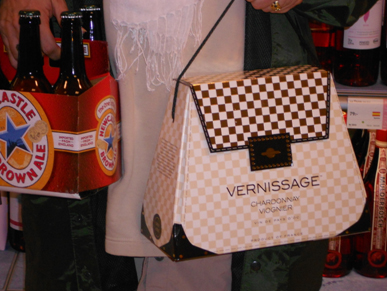Exporting beer to Sweden: make sure your labels pass Systembolaget’s muster
In many respects, Sweden must be the most libertarian country in the world – but not when it comes to alcohol. Many of the rules and regulations in place to control (read: limit) the consumption of alcohol would have to be called ridiculous if the whole matter were not so critical.
Take beer. All serious beer purchases (that is beer with an alcohol content of more than 3.5 percent ABV) are limited to Systembolaget, which is a government-owned chain of liquor stores in Sweden. Although it functions like any retailer world-wide in how it selects its portfolio of brands, it also acts like a political watchdog when it comes to labels.
Explicit no-nos are labels that show alcohol in connection with work, sports, weapons, traffic, sexuality and children.
So far so clear, you’d think. But not when you walk down Systembolaget’s aisles. There you will find wine bottles, which should clearly have not been put on the shelf, if Systembolaget had taken its own rules seriously.
That’s why the Swedish newspaper Dagens Nyheter on 13 September 2014 ran a story which expressed its surprise over some of Systembolaget’s decisions: namely which labels were ok and which labels were not.
For example, a wine with a label featuring a bomb (“Boom Boom Syrah”) had been vetted acceptable, whereas the Bollinger’s James Bond Special Edition champagne (GBP 150 per bottle in the UK) had been pulled because the figure “7” in “007” had been made to look like a pistol.
Incidentally, Captain Morgan rum, whose well-known label features a pirate with a sabre, had been given the nod of approval whereas Renato Ratti’s Ochettis Nebbio d’Alba wine had been deemed offensive because it showed an 18th century soldier leaning on his musket. Can anyone explain, please, why a musket and a pistol are objectionable while a sabre and a bomb are not? One would have thought that all of the above can be deadly.
If you find this confusing, wait for this. When it comes to sexual allusions, the decisions by those in charge of policing labels in Sweden are hardly any more comprehensible. Systembolaget decided that a German white wine whose label featured a series of Andy Warhol-type lip-sticked lips was chaste whereas a Cote du Rhone which ran by the label “Wacky Chicks” and sported lipstick imprints of several kissers was lewd. Oh well.
You may say that it serves vintners right if Systembolaget rejects their funky labels. Alas, brewers can also fall through the sieve. Because its label showed railroad tracks, a pale ale by the Swedish Train Station Brewery was rejected as Systembolaget thought it alluded to drinking at work, which is taboo.
If the brewery had known this in advance, it probably would not have called itself Train Station Brewery but, say, Communication Junction with Public Facilities.
So craft brewers beware: If you plan to sell your beers in Sweden, make sure you understand Systembolaget’s regulations for labels.
Canadean, a market research company, says that the demand for imported beers has risen sharply in recent years and in 2013 stood at more than a quarter of all domestic sales (27 percent). In 1999 imports represented just 11 percent of overall beer sales.

